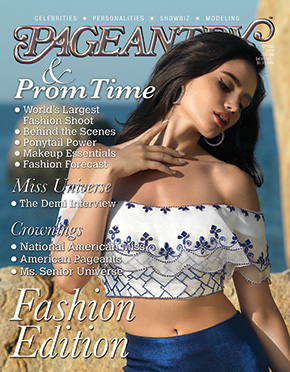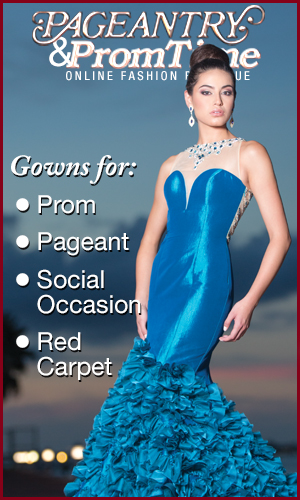


|
|
She went from being a sought-after Alabama scholar-athlete to become a promising pre-med pediatric cancer doctor. Along the way, she’s also learned to explain why the Miss America Organization matters to so many other young women with similar dreams.
How did your upbringing influence you to participate in pageants?
I wasn’t influenced to go into pageants growing up. I was a tomboy, and I was actually the only girl on a boys’ baseball team for six years, and I also played basketball and volleyball, so I was a pure athlete. I earned a college scholarship to the University of Virginia to play volleyball, and I played for a year and just decided that, when you get to that level in college sports, it’s a business. Thinking about going to medical school and getting involved in student government and a sorority, I decided that it wasn’t worth it to me, so I gave up my scholarship. My mom was a fan of Miss America, so she suggested I do preliminaries for the Miss Alabama Pageant. I had participated in my high school pageants, and I had won in my senior year, but I had never anticipated going into the Miss America system.
How do you compare the competition of sports and that of pageants?
I’ve always liked team sports, so for me it was like switching from a team sport to an individual sport. In pageant competition, you didn’t have anybody else to rely on — it was just you out there.
Do you consider yourself to be very competitive?
I don’t think I’m competitive with other people; I think I am competitive with myself just in terms of... I’m a perfectionist. If I make a mistake, I’m much more determined to go out there next time and not make that mistake. Overcoming challenges in pageants really parallels the challenges of sports.
How has getting involved in the Miss America program impacted your life in terms of your educational direction and plans?
I’ve wanted to go to medical school since I was in the ninth grade. It’s always been my goal to become a doctor. Even though I was a history major in college, I double-minored in biology and chemistry, and I knew throughout college that I wanted to go to medical school. Though the Miss America program didn’t change the direction I was going, it facilitated my ability to get there in terms of the scholarship money. I competed for five years in the Miss Alabama pageant. With all the scholarship money I earned, I was able to pay my entire way through college, and I now have about $75,000 to use for medical school. The grand total for those five years was close to $110,000. It was tremendously beneficial to me to be able to use the program to pay for my education. Also, because there are so many interviews in pageants, they really helped me going through the medical school admission process. I was accepted to three medical schools, and I think part of that was the result of having all that competition interview experience — I was able to walk into the college interviews and feel confident and be successful.
So what are your educational plans?
I was supposed to start at the University of Alabama medical school last summer, but now that has been deferred until next summer. It’s four years of medical school, and if I stay on my current track, I’ll then have three years of pediatric residency for a total of seven years.
What has been your focus in terms of your platform in support of pediatric cancer research?
Before I got involved with Miss Alabama, I spent some time at a summer camp for kids with cancer, and I loved it so much I signed up to be a counselor the following year, and it was also the same year I started competing in Miss Alabama, so I chose that to be my platform. When you meet these kids, you realize that they have to go through more adversity than adults ever have to face, and they’re so resilient. Of course, competing for five years in Miss America, it not only is a motivator to get involved in community service, it’s also a facilitator by providing access that you would not otherwise have because of your titles.
But I also realized there’s an even greater need for research funding. What I did in Alabama was come up with a permanent source of research funding in the form of a statewide specialty license plate, which benefits pediatric cancer research at Children’s Hospital in Birmingham. To get the plate started, I had to get 1,000 people to purchase that tag in advance before the state would produce it. We actually exceeded that, selling over 2,000 and raising close to $85,000 just in that pilot period alone. It’s now available statewide and we’re hoping to be the highest-grossing plate in the state. Now, as Miss America, I am national spokesperson for CureSearch [combining the efforts of the National Childhood Cancer Foundation and the Children Oncology Group], which represents all of the pediatric cancer treatment centers in North America.
In what way does going through the local, state, and national Miss
America competitions mimic job interview situations in other industries?
I’ve found that most of my medical school interviews were actually easier than most of the pageant interviews I had ever done, simply because the pageant interviews really challenge you in many different ways other than asking you to simply justify your career aspirations or explain why you are the right fit for this job. In my medical school interviews, I wasn’t asked about U.S. foreign policy or the war in Iraq, whereas in pageant interviews that is certainly fair game. The Miss America Organization prepares you for public speaking, as well as helping you build the confidence and interviewing skills that contestants carry over to whatever field they go into.
|
| |
STAR TURN: In between her numerous appearances at public schools, pediatric hospitals, parades, and promotional events, Miss America 2005 Deidre Downs has stepped into the limelight as a nationally recognized star, posing with such celebrities as A. rock ‘n’ roll performer Jon Bon Jovi, B. country singer LeAnn Rimes,
C. NBA legend Magic Johnson, D. “Late Show” host David Letterman, and E. movie actor Owen Wilson. |
Which places have you especially enjoyed visiting?
Of course, New York. I had never been to New York before this. New York City is definitely one of my favorites. I’ve been to about 25 states now — I’ve been to California several times, and got to go to Disney World in Orlando back in March with Children’s Medical Network when I was there for a week assisting in their telethon.
If Miss America could be considered like a movie role, what aspects of the part are most like you and what portions are more like acting?
The neat thing about being Miss America, Miss Alabama, or any title is that in many ways you shape the job by your own personality. So I don’t think it’s a mold that you have to fit into. That’s the strength of it; your own independent personality really gets to shine through.
Is there anything that you have had to learn to do better?
Aside from supporting the platform, being a good spokesperson for the Miss America program. You are the face of the organization. There are many misconceptions about the Miss America program, and it’s important that people who fill titleholder roles explain how the program has benefited them and all the positive aspects of the program.
What are the challenges in getting that message across?
The biggest hurdle we face is probably getting them to understand the scholarship aspect of it — that’s the crux of it as the largest not-for-profit provider of scholarships for women. Contestants at the local and state level may never get to the Miss America finals, but they’re using the program to further their education.
Who have you worked with this year that you particularly admire?
The Miss America office had asked me if there was anyone I wanted to meet this year, and I said former President Jimmy Carter is one of my personal heroes. They arranged for me to visit the Jimmy Carter Habitat for Humanity project in Benton Harbor, Michigan.
What was it like to build a house with him?
You know, he’s 83 years old and I think he worked harder than anyone at the site that day.
What other activities stand out as being special this year?
I’ve had this lifelong interest in politics and history, and I was able to do some lobbying of senators and congressmen on Capitol Hill with CureSearch. Getting access to senators and speaking directly with the people who make decisions about spending for cancer research was a real experience.
How do you think being Miss America will affect the rest of your life?
When you look at the other former Miss Americas and what they’ve been able to accomplish with their platforms and other issues they’ve been passionate about, they’ve been able to parlay their status to bring more attention to their cause. That’s what I see in my case — being able to be a better advocate for children’s health care as a former Miss America. That’s the strength of the Miss America name.
Is there anything else you want Pageantry readers to look for as you complete your year?
Yes, I taped a Queer Eye for the Straight Guy TV show segment. I did a guest spot that’s supposed to air in August. I assisted them in making over these firefighters who would then be auctioned off as dates, to raise money for a firefighters’ charity. I taught them how to walk on stage, and then I emceed the charity auction. We’ll see how it turned out. [Viewers can check the Queer Eye web site for the telecast’s schedule.] |
w
|



YOU CAN GET IT ALL!
Click and see for yourself!

|
|
